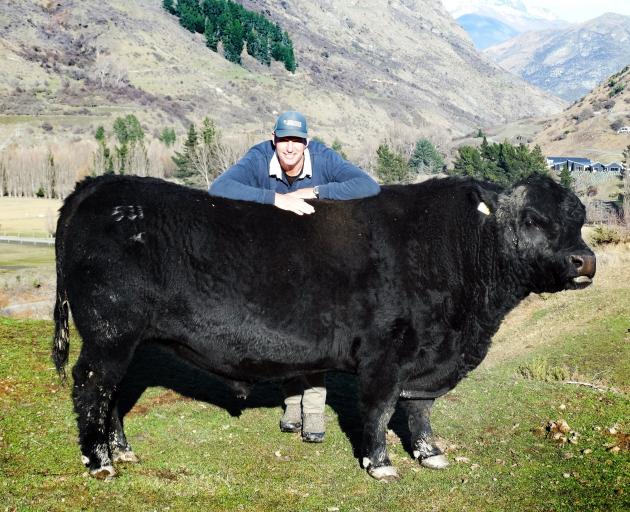In a bid to reduce its greenhouse gas emissions, Denmark will tax its farmers for the methane emissions from their cows, sheep and pigs from 2030, making it the first country in the world to do so. The move comes the same day the New Zealand government pledged to review methane science and targets, following a law change to keep agriculture out of the Emissions Trading Scheme, passing its first reading. Shawn McAvinue asks southerners involved in the primary industries if they believe New Zealand missed an opportunity of being the first country to tax agricultural emissions to protect its reputation of upholding some of the highest environmental standards in the world.
Sheep and beef farmer Kate Pont, of Eastern Bush, Western Southland ... "If we are polluting we should be paying for it, the same as any industry, but we don’t want to rush into something and get it wrong. It is a big deal for everyone and it needs to be done right and I don’t think we should be rushing into anything to be the first ones to do it. But I do believe if we are doing the wrong thing, we should work out what we are doing wrong and try to fix it by changing our practices rather than pay for it. We all have to do our bit."
Sheep and beef farmer Rebecca Begg, of Clydevale, South Otago ... "We look at it the wrong way round. We look at it as a legislation or regulation-type approach, when actually it is what we have to do for markets. We have to define our product and not assume it is all good and describe what we do and how we do it better, otherwise nobody will pay for it."
Pig farmer Ian Carter, of Hampden, North Otago ... "No I don’t think they missed an opportunity at all. I don’t think we should be putting a tax on. A country should be taxed on its consumption and not on its production. Rather than taxing a country on what it produces, it should be more about making sure what you consume in your country is produced efficiently. That would incentivise people to deal with countries that have low emission production systems."
Sheep and beef farmer Mike Smith, of Lake Hayes in Wakatipu Basin.
"First and foremost we need accurate science to make informed decisions. Racing to be the first is not a sound option to take. We need to make sure we have the right science to evaluate, to help us make the decisions."
Sheep and beef farmer Simon Davies, of Toko Mouth, South Otago ... "I don’t think we have. The issue I have is you can’t compare New Zealand with European farmers because we don’t have a lot of subsidies and environmental incentives to do whatever is required to keep the farming operation going. New Zealand farmers don’t have that luxury. If New Zealand farmers were put on the same playing field as farmers in Europe or the United States and had the same level of subsidies then potentially we did miss a trick, but because we are not in that situation, I don’t think we’ve missed an opportunity by not being first."
Farm systems adviser Shane Bocock, of Greenfield, South Otago ... "I don’t think they’ve missed an opportunity at all. However, I do think we need to take the situation more seriously than we do because we are kicking the can down the road too easily these days. I believe there should be a disincentive of some type, whether it is a tax or cost to running super intense farming systems, where feed is brought in to the property from large distances away, which increases their productivity on a per hectare basis and also their carbon footprint. It is time we had a serious conversation about intensive agriculture. Moderate and low intensity systems should not be taxed at all."
Sheep and beef farmer Andrew Morrison, of Waikaka Valley near Gore ... "None of us can have this conversation as farmers until we know where we sit in the spectrum by building an appropriate system to measure on-farm emissions and sequestration. That is the starting point. He Waka Eke Noa was about building the measuring system. Industry was contributing to try and find a solution. Everyone knew a split gas would never fit in the ETS and all we were trying to do was find an alternative system to measure and validate those on-farm gases ... a levy for research was always proposed as opposed to a tax. No-one wanted a tax bar the government, but we have to work out how we fund research to find solutions. That is where [public-private partnership] AgriZero has been really good because you are getting a contribution from business to find a solution. Markets and business should lead this, ahead of regulation."
Farm business consultant Lloyd McCall, of Tapanui, West Otago ... "I believe New Zealand does uphold some of the highest environmental standards in the world and I don’t think we missed an opportunity to have to lead at every occasion. I think New Zealand has to take its time in establishing the role methane plays and our ability to mitigate it. I think we can lead the world in time. I wouldn’t rule out there should be some sort of emissions levy or tax to help offset emissions, but I don’t think it is a silverbullet and I don’t think it should be the first port of call. We have to understand where we are at, where we are going and how we are going to get there and what we need to do to fulfil our obligations."

















